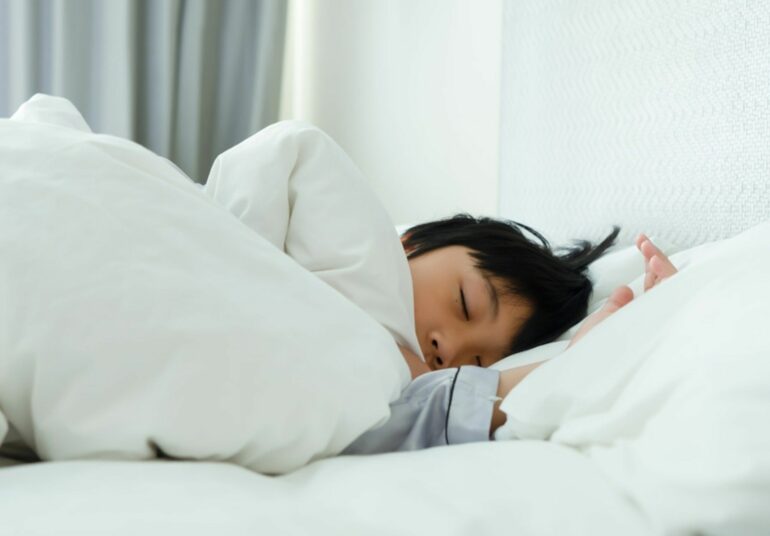A two-year research review of sleep studies during the pandemic shows that children and those who contracted COVID-19 took the biggest hit in their sleep quality, according to a recently study published in Sleep Medicine Reviews.
“The number of children with sleep disturbances nearly doubled. It was somewhat surprising that one of the biggest impacts we found was among the children,” said Dr. Michael Vitiello, senior author of the study and a University of Washington (UW) Medicine psychiatrist and sleep specialist.
Before the pandemic emerged in 2020, about 25% of children reportedly suffered from sleep disturbances, the report noted. During the pandemic, that percentage jumped to 46%, a statistic the study called “alarming.” Sleep disturbances among children ages 10 to 17 were attributed to bedtimes and wakeup times, inability to do outdoor activities during lockdown, remote learning and lack of in-person social activities.
Children also picked up on the stress of the adults around them, Vitiello noted.
“It was very surprising, a little counterintuitive that children and adolescents would be impacted so much. But if you think about it, they’re the ones that don’t have the information to process what’s going on,” said Vitiello. “They haven’t learned the coping mechanisms, hopefully, that adults have. They’re picking up on peer concerns and they’re picking up on parental concerns. A lot of things can account for that sensitivity.”
This figure was part of a comprehensive meta analysis—and one of the largest of its kind—that reviewed 250 research papers worldwide involving 493,000 people in 49 countries, including the United States.
This study follows a smaller 2021 study also authored by Vitiello, in which about 40% of the participants reported trouble sleeping. That number included 75% of COVID-19 patients having problems, 36% of the healthcare workers and 32% of the general population. Young adults and women seemed particularly hard-hit by the first year of the pandemic, the study noted.
“This increase was particularly striking in young adults and females,” he said at the time. “An intersection where the risks of anxiety symptoms, depressive symptoms, and sleep problems are high. Young adults are also more responsive to social isolation. They’re not developed as adults in coping skills.”
In the new meta analysis, the breakout was similar. Six major populations were identified, with 52% of the COVID-19 patients reporting a problem with sleep, 42.5% of children and adolescents, 41% of the healthcare workers, and 36% of the general population
“Another interesting finding is that the frequency of sleep disturbances reported in 2021 appear to be higher than in 2020, suggesting that the COVID 19 pandemic is continuing to have a negative impact on sleep,” he said.
The next steps for his team will be to examine how sleep might be affected now that the pandemic seems to be waning.
“We will be analyzing data to see if the sleep problems recede, stabilize or become worse,” Vitiello said. “Often people experience a problem that disturbs sleep, but once that it gone, the sleep disturbance may become chronic. It’s an open question right now in the context of the pandemic.”
Follow-up is needed on the most affected groups—children, COVID-19 patients, university students and pregnant women—on whether sleep disruptions are persisting and whether they might be associated with other chronic health problems, he said.
Studies have confirmed that sleep loss impacts blood sugar, heart health, brain health and depression. It might be helpful for primary-care physicians and pediatricians to more routinely ask patients about sleep quality during office visits, Vitiello suggested.
More information:
Haitham A. Jahrami et al, Sleep disturbances during the COVID-19 pandemic: A systematic review, meta-analysis, and meta-regression, Sleep Medicine Reviews (2022). DOI: 10.1016/j.smrv.2022.101591
Provided by
University of Washington
Citation:
Kids’ sleep disrupted during the pandemic, study finds (2022, March 16)



